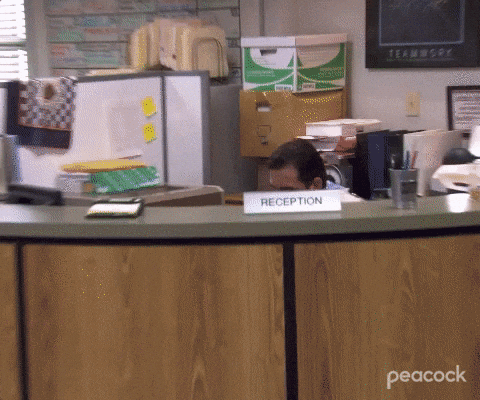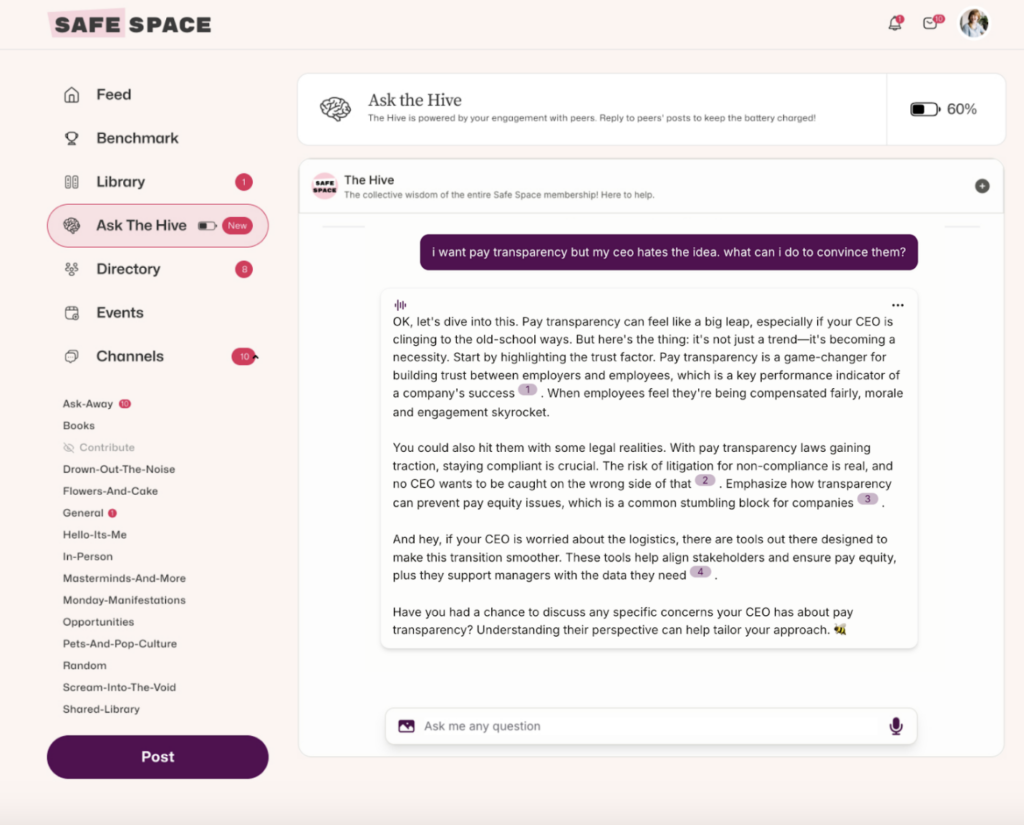
Started dating a co-worker. I decided we weren’t a match and let him know how I felt. He went to the psych hospital and never came back to the job. He’s still alive and doing well, but WOW! I knew I was a catch, but not so much to send someone to the hospital. How should HR handle situations where personal relationships between coworkers lead to significant personal issues or disruptions in the workplace?
Context: 120 employees. Human service agency. State funded.
📣 Kristina Frisk, HR Manager @ Complete Health:
In my experience, all the normal things have to happen – i.e. making sure that it is not a situation where a manager is managing their dating partner (had this happen at a prior employer and we moved her under someone else’s management when we found out). We have a nepotism/Personal Relationships policy in place. We don’t disallow dating but there are rules.
Here we actually have a situation where our CEO is in a serious relationship with our Clinical Operations Manager. Our Board of Directors is aware, I am aware, and I know that if any issues arise I go straight to the board to work them out. They are both very professional about keeping it business only while here. If there are ever any grumblings amongst other employees about it, it gets handled at that time. It generally just involves a conversation.
What it comes down to is making sure that they don’t disrupt the workplace. My suggestion would be to have a conversation with both parties first to lay down those ground rules. If that doesn’t solve it, work through progressive discipline if you have it, as now they are disrupting the workplace. I am sorry that happened to you!
📣 Alex Clermont, Director of People and Culture @ Steppingstone:
I agree with everything Kristina said. I think the other important thing is to not overreact. Lay out expectations, handle disruptions as they come up the way you would any other interpersonal issue, make sure there’s no ethics issue, and then let people handle themselves. I think the relationship piece is a red herring. The worst interpersonal issues I’ve dealt with in the workplace have been due to close female friendships falling apart, honestly. In general, adults should be able to handle heightened emotions and minor interpersonal drama and still remain basically professional.
The only exception being that if there is a sexual relationship involved there’s a heightened responsibility to be aware of the potential for sexual harassment, either between the couple or as a result of the way they handle the fallout (for example – if a manager is discussing their sex life with a direct report because they’re complaining about their ex). Again, this may largely be about setting expectations, but it’s a layer to be thinking about.
Safe Space members can join this discussion here. Not a member yet? Apply to join here.

I was in HR and dated a colleague. I disclosed it to my boss (Chief People Officer), and she gossiped about it to everyone. How can HR professionals ensure confidentiality is maintained when employees disclose personal relationships, and what steps should be taken if this trust is breached?
Context: ~500 people in our country, but a ~10,000 person public company globally. Professional services industry.
📣 Nance Hodges, Director, Talent @ Fraym:
Wow, your boss needs formal coaching or a write-up for breaching this type of confidentiality. Someone with her title, and assuming experience should know better, and absolutely shouldn’t be gossiping about anything with other colleagues.
But your question was more general than just about your boss, so I would recommend first ensuring everyone understands the expectation of confidentiality across the department. If there isn’t a formal company policy or expectation in place, you may need to go back and start there.
From there, it’s really about holding people accountable, and your follow-up. If you find out people have been breaching confidentiality (especially if it’s a company policy), you have to follow up with feedback and/or documented coaching at minimum, and if it continues, or this is a terminable offense with your company, you can always go down that path.
JOIN 150K+ HR LEADERS
Get insights, learnings, and advice on how to build companies and cultures that people actually love.
No spam. Unsubscribe any time.
📣 Marcie Chavez, HR Consultant @ Zia HR:
I’m so sorry this happened to you! You were doing the right thing in disclosing it, so it’s unfortunate that the CPO violated confidentiality.
Your question about how HR professionals can ensure confidentiality is maintained in situations like this is clearcut, in my opinion. HR professionals have access to tons of confidential information, including disclosed relationships, medical issues, harassment complaints, pay rates, corrective action details, and the list goes on. If an HR professional doesn’t keep a disclosed relationship confidential, what else are they not keeping confidential? Anyone who violates that intentionally should be disciplined and face serious consequences.
When HR professionals violate confidentiality, it erodes the trust that employees have with HR of the company. If someone has the tendency to gossip or has trouble keeping things confidential, they have no business working in this field, quite frankly. The only resolve I’ve ever seen help repair the trust of the employees once broken is when the person(s) who breached confidentiality are removed entirely from the organization.
As far as your specific situation, if it was not the Chief People Officer involved, I would urge you to file a complaint against them regarding the gossip and breach of confidentiality so that it would be investigated and they would be held accountable, but the reality is that that’s difficult to do if they are not only your boss, but also the head of HR.
You do have the option to reach out to your CEO or whomever the CPO reports to, to discuss what happened, however, you do run the real risk that your boss will be upset that you went to their boss, then deny it entirely, and potentially retaliate against you.
You could also try to confront them directly without the formal involvement of their boss, and express: a) that you found out they were discussing this and breached confidentiality and b) why this upsets you, violates your trust and is unacceptable. This may help you at least address the issue with them and let them know it’s unacceptable. You still run the risk of this action damaging your supervisor/employee relationship which could make your employment there difficult.
Lastly, you may decide it is not worth addressing with them, but instead consider looking for work elsewhere. Leaders set the tone and if the Chief People Officer where you are at does not value confidentiality that may not be somewhere you want to work at the end of the day.
Kathy Bryan, EVP Head of Marketing @ Electives:
Gossipping happens across all departments and at all levels, but it hurts a lot more when people leaders are modeling bad behavior. I echo Nance in recommending a formal write-up and written policies on what is expected.
Unfortunately, in my experience, it’s very hard to turn a gossiper into a trusted confidante. And, if someone is telling you other people’s secrets, you should assume they’re sharing yours too.
However, sometimes conversations, education and growth opportunities are the answer to improving confidentiality. For example, here’s a time I succeeded in creating a trusted confidante: A direct report had believed it was okay to chat with other execs about a confidential topic because she assumed they already knew about it. After I explained that not all execs are always in the know about all things, she learned to ask who she could talk with before actually talking with them.
Safe Space members can join this discussion here. Not a member yet? Apply to join here.


